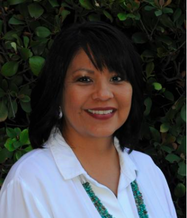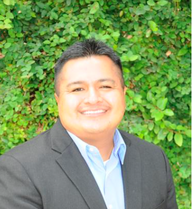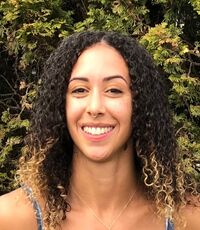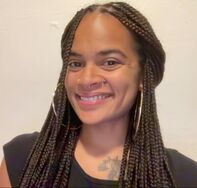2022-23 INSTITUTE FOR TEACHERS OF COLOR COMMITTED TO RACIAL JUSTICE
ITOC is on-going critical professional development space designed to support wellbeing, strengthen racial literacy, and cultivate the racial justice leadership capacities of teachers of Color who work in K-12 public schools that serve students of Color. A unique collaboration between the disciplines of Teacher Education, Educational Leadership, and Ethnic Studies, this national conference rigorously selects and supports approximately ITOC Fellows across the U.S. and beyond each year.
Thank you to all who applied to attend this year's virtual programming, our application cycle is currently closed. With consideration of the public health context, we hope to reconvene in-person in June 2023 for our three day summer institute. Applications will be available Feb, 1, 2023.
Thank you to all who applied to attend this year's virtual programming, our application cycle is currently closed. With consideration of the public health context, we hope to reconvene in-person in June 2023 for our three day summer institute. Applications will be available Feb, 1, 2023.
KEYNOTE EVENTS

Rethinking Race, Class, Language, and Educational Inequity
September 8, 2022; 4-5:30pm PST
This talk examines widespread assumptions about race, class, language, and educational achievement. It analyzes case studies that highlight the deceptive nature of widely circulated educational categories such as “at risk youth,” “English Learners,” and “(under)achievement.” Beyond simply critiquing these labels, we will consider educational approaches that take seriously the vast challenges hindering normatively defined academic success, as well as the infinite, profound educational opportunities that exist within all marginalized contexts. Participants will be introduced to strategies for reframing learning challenges stereotypically associated with racial, socioeconomic, linguistic diversity as opportunities to redefine and reassess academic goals, skills, and outcomes.
Jonathan Rosa is an Associate Professor in the Graduate School of Education, Center for Comparative Studies in Race and Ethnicity, and, by courtesy, Departments of Anthropology, Linguistics, and Comparative Literature at Stanford University. He is also the Director of Stanford’s Program in Chicanx-Latinx Studies and President of the Association of Latina/o and Latinx Anthropologists of the American Anthropological Association. Dr. Rosa’s research centers on joint analyses of racial marginalization, linguistic stigmatization, and educational inequity. He is author of the award-winning book, Looking like a Language, Sounding like a Race: Raciolinguistic Ideologies and the Learning of Latinidad (2019, Oxford University Press), and co-editor of the volume, Language and Social Justice in Practice (2019, Routledge). His work has appeared in scholarly journals such as Harvard Educational Review, American Ethnologist, Journal of Linguistic Anthropology, and Language in Society, as well as media outlets such as The New York Times, The Nation, NPR, and Univision.
September 8, 2022; 4-5:30pm PST
This talk examines widespread assumptions about race, class, language, and educational achievement. It analyzes case studies that highlight the deceptive nature of widely circulated educational categories such as “at risk youth,” “English Learners,” and “(under)achievement.” Beyond simply critiquing these labels, we will consider educational approaches that take seriously the vast challenges hindering normatively defined academic success, as well as the infinite, profound educational opportunities that exist within all marginalized contexts. Participants will be introduced to strategies for reframing learning challenges stereotypically associated with racial, socioeconomic, linguistic diversity as opportunities to redefine and reassess academic goals, skills, and outcomes.
Jonathan Rosa is an Associate Professor in the Graduate School of Education, Center for Comparative Studies in Race and Ethnicity, and, by courtesy, Departments of Anthropology, Linguistics, and Comparative Literature at Stanford University. He is also the Director of Stanford’s Program in Chicanx-Latinx Studies and President of the Association of Latina/o and Latinx Anthropologists of the American Anthropological Association. Dr. Rosa’s research centers on joint analyses of racial marginalization, linguistic stigmatization, and educational inequity. He is author of the award-winning book, Looking like a Language, Sounding like a Race: Raciolinguistic Ideologies and the Learning of Latinidad (2019, Oxford University Press), and co-editor of the volume, Language and Social Justice in Practice (2019, Routledge). His work has appeared in scholarly journals such as Harvard Educational Review, American Ethnologist, Journal of Linguistic Anthropology, and Language in Society, as well as media outlets such as The New York Times, The Nation, NPR, and Univision.

From Theory to Praxis: Implementing Linguistic Justice in the Classroom
Applied Workshop (Limited space), September 28, 4-6pm PST
Building from last year's keynote, in this workshop, participants will have an opportunity to engage in more intimate conversations about Anti-Black Linguistic Racism and how they can implement Antiracist Language Pedagogies in their respective classrooms. Participants will also have opportunities to ask specific questions about their teaching philosophies of language, language policies, curriculum, practices, syllabi, writing assignments, etc. Baker-Bell will share sample syllabi, assignments, and activities.
April Baker-Bell is an award-winning transdisciplinary teacher-researcher-activist and associate professor of language, literacy, and English education in the Department of English and Department of African American and African Studies at Michigan State University. Her award-winning book, Linguistic Justice: Black Language, Literacy, Identity, and Pedagogy, brings together theory, research, and practice to dismantle Anti-Black Linguistic Racism and white linguistic supremacy. Baker-Bell is the recipient of many awards and fellowships, including the 2021 Coalition for Community Writing Outstanding Book Award, the 2021 Andrew W. Mellon Foundation’s New Directions Fellowship, the 2021 Distinguished Partnership Award for Community-Engaged Creative Activity, and the 2020 Theory Into Practice Article of the Year Award.
Applied Workshop (Limited space), September 28, 4-6pm PST
Building from last year's keynote, in this workshop, participants will have an opportunity to engage in more intimate conversations about Anti-Black Linguistic Racism and how they can implement Antiracist Language Pedagogies in their respective classrooms. Participants will also have opportunities to ask specific questions about their teaching philosophies of language, language policies, curriculum, practices, syllabi, writing assignments, etc. Baker-Bell will share sample syllabi, assignments, and activities.
April Baker-Bell is an award-winning transdisciplinary teacher-researcher-activist and associate professor of language, literacy, and English education in the Department of English and Department of African American and African Studies at Michigan State University. Her award-winning book, Linguistic Justice: Black Language, Literacy, Identity, and Pedagogy, brings together theory, research, and practice to dismantle Anti-Black Linguistic Racism and white linguistic supremacy. Baker-Bell is the recipient of many awards and fellowships, including the 2021 Coalition for Community Writing Outstanding Book Award, the 2021 Andrew W. Mellon Foundation’s New Directions Fellowship, the 2021 Distinguished Partnership Award for Community-Engaged Creative Activity, and the 2020 Theory Into Practice Article of the Year Award.

Decolonial Praxis: Indigenous Land, People, and Resurgence
October 13, 2022; 4-5:30pm PST
Recently, we have seen the resurgence of Indigenous teachings reflected in movement spaces where actions to protect our sacred sites, water, and land are occurring. Education in movement spaces creates opportunities for Indigenous education to be a site of resistance and hope that reflects collective solidarity, sustains our epistemologies (ways of knowing), and humanizes our relations to our landscapes. In this session, Shirley and Garcia will build upon their work with Indigenous teachers who serve Indigenous youth, to share ways teachers of Color can activate a critical consciousness within students that are in solidarity with Indigenous communities.
Valerie Shirley (Diné) is Associate Professor of Indigenous Education in the Department of Teaching, Learning, and Sociocultural Studies and Dean’s Fellow for Indigenous Education in the College of Education at the University of Arizona. She is also a co-founding Director of the Indigenous Teacher Education Program (ITEP) which prepares Indigenous teachers to critically examine western schooling structures and be intentional in infusing Indigenous knowledges, philosophies, and languages into learning spaces. Her current work is centered on mobilizing decolonial praxis through Indigenous social justice education with Indigenous youth, teachers, and teacher candidates. Her recent publications are a co-edited book titled Indigenizing education: Transformative research, theories, and praxis (2022); a journal article titled Grounding Indigenous teacher education in red praxis (2021), and a book chapter titled Enacting Indigenous research methods: Centering Diné epistemology to guide the process (2019).
October 13, 2022; 4-5:30pm PST
Recently, we have seen the resurgence of Indigenous teachings reflected in movement spaces where actions to protect our sacred sites, water, and land are occurring. Education in movement spaces creates opportunities for Indigenous education to be a site of resistance and hope that reflects collective solidarity, sustains our epistemologies (ways of knowing), and humanizes our relations to our landscapes. In this session, Shirley and Garcia will build upon their work with Indigenous teachers who serve Indigenous youth, to share ways teachers of Color can activate a critical consciousness within students that are in solidarity with Indigenous communities.
Valerie Shirley (Diné) is Associate Professor of Indigenous Education in the Department of Teaching, Learning, and Sociocultural Studies and Dean’s Fellow for Indigenous Education in the College of Education at the University of Arizona. She is also a co-founding Director of the Indigenous Teacher Education Program (ITEP) which prepares Indigenous teachers to critically examine western schooling structures and be intentional in infusing Indigenous knowledges, philosophies, and languages into learning spaces. Her current work is centered on mobilizing decolonial praxis through Indigenous social justice education with Indigenous youth, teachers, and teacher candidates. Her recent publications are a co-edited book titled Indigenizing education: Transformative research, theories, and praxis (2022); a journal article titled Grounding Indigenous teacher education in red praxis (2021), and a book chapter titled Enacting Indigenous research methods: Centering Diné epistemology to guide the process (2019).

Jeremy Garcia (Hopi/Tewa) is an Associate Professor of Indigenous Education in the Department of Teaching, Learning, and Sociocultural Studies in the College of Education at the University of Arizona. Dr. Garcia is of the Hospoawungwa (Roadrunner) clan. He is co-founding Director of the Indigenous Teacher Education Program (ITEP) at the University of Arizona. His research focuses on decolonization, critical Indigenous curriculum and pedagogy, Indigenous teacher education, and critical and culturally sustaining family and community engagement. Recent publications include a co-edited book, Indigenizing Education: Transformative Research, Theories, and Praxis (2022), and a co-authored article, Grounding Indigenous Teacher Education in Red Praxis (2021).

The Fugitive Life of Black Teaching: A History of Pedagogy and Power
PUBLIC VIRTUAL EVENT: November 10, 2022; 4-5pm PST
Co-sponsored by: UCR School of Education's K-12 Ethnic Studies Speaker Series
Professor Givens offers the term “fugitive pedagogy” to characterize African Americans’ subversive educational traditions from the slavery era through Jim Crow. Using the life of famed educator and historian Carter G. Woodson as a lens, Givens reveals an expansive world of black teachers who cultivated dreams and aspirations in generations of students, despite a world order built on black subjection. And as he will demonstrate, much of this work took place through discreet, quiet acts of resistance. Givens insists that African American educators’ pedagogical traditions were essential to the Black Freedom Movement and formed the roots of anti-racist teaching in the United States.
Jarvis Givens is an Assistant professor of Education and African and African American Studies at Harvard University. Professor Givens is the author of Fugitive Pedagogy: Carter G. Woodson and the Art of Black Teaching, published by Harvard University Press in 2021, which won the 2022 Association for the Study of African American Life and History (ASALH) Book Prize for “the best new book in African American History and Culture,” the 2022 Outstanding Book Award for the American Education Research Association, and the 2022 Lois P. Rudnick Book Award for the New England American Studies Association. He co-edited We Dare Say Love: Supporting Achievement in the Educational Life of Black Boys, published by Columbia University's Teachers College Press in 2018, and his work has been supported by grants and fellowships from the Ford Foundation, the Andrew W. Mellon Foundation, and the Radcliffe Institute for Advanced Study. Professor Givens is also building the Black Teacher Archive, an online portal that will house digitized records documenting the more than one-hundred-year history of “Colored Teachers Associations.” He is a native of Compton, California, and he currently resides in Roxbury, Massachusetts.
PUBLIC VIRTUAL EVENT: November 10, 2022; 4-5pm PST
Co-sponsored by: UCR School of Education's K-12 Ethnic Studies Speaker Series
Professor Givens offers the term “fugitive pedagogy” to characterize African Americans’ subversive educational traditions from the slavery era through Jim Crow. Using the life of famed educator and historian Carter G. Woodson as a lens, Givens reveals an expansive world of black teachers who cultivated dreams and aspirations in generations of students, despite a world order built on black subjection. And as he will demonstrate, much of this work took place through discreet, quiet acts of resistance. Givens insists that African American educators’ pedagogical traditions were essential to the Black Freedom Movement and formed the roots of anti-racist teaching in the United States.
Jarvis Givens is an Assistant professor of Education and African and African American Studies at Harvard University. Professor Givens is the author of Fugitive Pedagogy: Carter G. Woodson and the Art of Black Teaching, published by Harvard University Press in 2021, which won the 2022 Association for the Study of African American Life and History (ASALH) Book Prize for “the best new book in African American History and Culture,” the 2022 Outstanding Book Award for the American Education Research Association, and the 2022 Lois P. Rudnick Book Award for the New England American Studies Association. He co-edited We Dare Say Love: Supporting Achievement in the Educational Life of Black Boys, published by Columbia University's Teachers College Press in 2018, and his work has been supported by grants and fellowships from the Ford Foundation, the Andrew W. Mellon Foundation, and the Radcliffe Institute for Advanced Study. Professor Givens is also building the Black Teacher Archive, an online portal that will house digitized records documenting the more than one-hundred-year history of “Colored Teachers Associations.” He is a native of Compton, California, and he currently resides in Roxbury, Massachusetts.

Riding the Wave: Unpacking Internalized and Subversive Oppression and Prioritizing Sustainable Self-Care for BIPOC Educators
February 9, 2023; 4-5:30pm PST
As we continue to navigate the global upheaval, pandemic fallout, and racial injustice of the past three years, the collective mental health impacts of ongoing trauma cannot be ignored. BIPOC educators are facing additional layers of an increasingly polarized educational landscape that denies our lived experience. While we're pivoting and improving in our ability to cope with overt acts of harm and marginalization, we're also learning to numb and ignore more subversive and subtle forms of oppression. Similarly, we're becoming more adept in managing stressors, yet the lingering effects of stress on the nervous system are often overlooked. This workshop aims to normalize collective trauma responses for BIPOC educators as well as provide tangible coping frameworks. We will unpack the insidious effects of microaggressions, racial gaslighting, and internalized oppression. Teasing apart stressors vs. stress, we'll explore sustainable and embodied ways to better address our nervous system needs. Rooted in the strengths of historically overlooked communities, we prioritize collective care and uncover ways of forging ahead with compassion.
Dr. Han Ren (she/they) is a licensed clinical and school psychologist, consultant, speaker and educator. She is deeply rooted in liberation and anti-oppressive work, practicing from a justice-oriented, interpersonal, and systems-informed framework. Through her widely viewed work on social media, she strives to make therapy accessible and applicable to our daily lives. Dr. Ren addresses the pursuit of collective healing through her work and activism centered in historically overlooked communities. When she's not in the therapy chair, you can find her laughing with family and friends, caffeinating with black coffee, dancing offbeat to live music and Peloton-ing.
February 9, 2023; 4-5:30pm PST
As we continue to navigate the global upheaval, pandemic fallout, and racial injustice of the past three years, the collective mental health impacts of ongoing trauma cannot be ignored. BIPOC educators are facing additional layers of an increasingly polarized educational landscape that denies our lived experience. While we're pivoting and improving in our ability to cope with overt acts of harm and marginalization, we're also learning to numb and ignore more subversive and subtle forms of oppression. Similarly, we're becoming more adept in managing stressors, yet the lingering effects of stress on the nervous system are often overlooked. This workshop aims to normalize collective trauma responses for BIPOC educators as well as provide tangible coping frameworks. We will unpack the insidious effects of microaggressions, racial gaslighting, and internalized oppression. Teasing apart stressors vs. stress, we'll explore sustainable and embodied ways to better address our nervous system needs. Rooted in the strengths of historically overlooked communities, we prioritize collective care and uncover ways of forging ahead with compassion.
Dr. Han Ren (she/they) is a licensed clinical and school psychologist, consultant, speaker and educator. She is deeply rooted in liberation and anti-oppressive work, practicing from a justice-oriented, interpersonal, and systems-informed framework. Through her widely viewed work on social media, she strives to make therapy accessible and applicable to our daily lives. Dr. Ren addresses the pursuit of collective healing through her work and activism centered in historically overlooked communities. When she's not in the therapy chair, you can find her laughing with family and friends, caffeinating with black coffee, dancing offbeat to live music and Peloton-ing.

Intersectional Justice: Disability, Race, and Policy in Schools
March 9, 2023; 4-5:30pm PST
In her talk, Adai will engage participants in a discussion exploring how education policies and practices serve as a tool of opportunity and exclusion for BIPoC students with disabilities and their families. She will explore how non-intersectional approaches to disability in education policies and practices shape contemporary inequalities in schools. Focusing on the voices and experiences of BIPoC families and sharing the experiences of educators’ and leaders’ attempts to abide by rigid policies, Adai will demonstrate how educators can utilize more just education practices by accounting for students’ and families’ intersectional lives.
Adai Tefera is an Assistant Professor of Special Education at the University of Arizona. Her scholarship focuses on how educational policies aimed at improving equity among students at the intersections of race, disability, language, and other sociocultural differences are enacted and experienced by educators, leaders, and students. She has worked in schools, both in after-school and summer programs, and served as a fellow with the Congressional Black Caucus Foundation. Her commitment to educational equity and justice is rooted in her experiences as the daughter of Ethiopian immigrants, her upbringing in Albuquerque, New Mexico, and her experiences learning from and with students with disabilities, especially her sister, who remains one of her most important teachers.
March 9, 2023; 4-5:30pm PST
In her talk, Adai will engage participants in a discussion exploring how education policies and practices serve as a tool of opportunity and exclusion for BIPoC students with disabilities and their families. She will explore how non-intersectional approaches to disability in education policies and practices shape contemporary inequalities in schools. Focusing on the voices and experiences of BIPoC families and sharing the experiences of educators’ and leaders’ attempts to abide by rigid policies, Adai will demonstrate how educators can utilize more just education practices by accounting for students’ and families’ intersectional lives.
Adai Tefera is an Assistant Professor of Special Education at the University of Arizona. Her scholarship focuses on how educational policies aimed at improving equity among students at the intersections of race, disability, language, and other sociocultural differences are enacted and experienced by educators, leaders, and students. She has worked in schools, both in after-school and summer programs, and served as a fellow with the Congressional Black Caucus Foundation. Her commitment to educational equity and justice is rooted in her experiences as the daughter of Ethiopian immigrants, her upbringing in Albuquerque, New Mexico, and her experiences learning from and with students with disabilities, especially her sister, who remains one of her most important teachers.

Embracing Community: Understanding and Valuing Community-based Educational Spaces to Holistically Support Youth of Color
PUBLIC VIRTUAL EVENT: April 20, 2023; 4-5:30pm PST
Young people have a vast learning ecosystem that includes learning within schools, families, neighborhoods, peer groups, and community-based educational spaces. Far too often, teaching and learning are often relegated to school-based teaching. What can be learned from understanding the fullness of young people’s networks and the spaces outside of school that supports their academic, cultural, social, and political lives? Drawing on decades of research with community-based youth workers engaging Youth of Color, this talk will offer educators a broader understanding of community-based spaces and youth work practice while offering tangible tools for bridging schools and community-based spaces. As the sociopolitical context of community-based education creates tensions within the field, this talk isn’t a romanticization of these spaces but rather an effort to reimagine how we think about community and young people’s educational futures.
Bianca Baldridge is an Associate Professor of education with expertise in community-based education and critical youth work practice at the Harvard Graduate School of Education. Baldridge’s research explores critically examines the confluence of race, class, and gender and their impact on educational reforms that shape community-based spaces engaging Black and Latinx youth in the US.
PUBLIC VIRTUAL EVENT: April 20, 2023; 4-5:30pm PST
Young people have a vast learning ecosystem that includes learning within schools, families, neighborhoods, peer groups, and community-based educational spaces. Far too often, teaching and learning are often relegated to school-based teaching. What can be learned from understanding the fullness of young people’s networks and the spaces outside of school that supports their academic, cultural, social, and political lives? Drawing on decades of research with community-based youth workers engaging Youth of Color, this talk will offer educators a broader understanding of community-based spaces and youth work practice while offering tangible tools for bridging schools and community-based spaces. As the sociopolitical context of community-based education creates tensions within the field, this talk isn’t a romanticization of these spaces but rather an effort to reimagine how we think about community and young people’s educational futures.
Bianca Baldridge is an Associate Professor of education with expertise in community-based education and critical youth work practice at the Harvard Graduate School of Education. Baldridge’s research explores critically examines the confluence of race, class, and gender and their impact on educational reforms that shape community-based spaces engaging Black and Latinx youth in the US.
RACIAL JUSTICE IN EDUCATION MINI-COURSES
Racial Justice Education Mini-Courses are designed to provide a dialogical space for ITOC fellows to engage more in-depth on a specific topic of interest, once a week in four consecutive weeks. Space is limited in each course, so we ask interested educators/teacher educators to complete a short application form that will be sent out approximately two weeks before each course begins. These courses are included in the fellowship.

Teaching to the “Now”: Creating Community-Responsive Racial Justice Curriculum
October 4, 11, 18, 25; 4:15-5:30pm PST
The murder of George Floyd in Minneapolis, Minnesota pushed many educators to reconsider how they discuss racism and other issues of injustice in their classrooms. It had a singular impact on educators in Minneapolis and surrounding communities, whose students bore witness to and experienced trauma from this tragedy. In this mini-course, participants will examine and discuss the contexts in which they teach, and their ability to design curriculum that critically responds to the specific issues of racial injustice in their respective communities. We will collectively dig into the successes and barriers in doing this work, and reflect on tools and frameworks we can use to increase our capacity to be responsive to both the immediate and long-term “now” for our students.
Michaela McCoy is a high school English teacher and organizer who teaches in the suburbs of Minneapolis, MN. She holds a master’s degree in urban education with a concentration in curriculum, assessment, and instruction from Metropolitan State University and has served as English department chair. In 2020, she co-founded Restoring Our Roots, an affinity space for Minnesota teachers of color to collectively heal and empower themselves to be leaders in racial justice work. Michaela is passionate about engaging students critically in the English classroom and designing curriculum that pushes students to “freedom dream” about a better world. Outside of education, Michaela likes to binge watch reality TV and spend time on and around the lakes.
October 4, 11, 18, 25; 4:15-5:30pm PST
The murder of George Floyd in Minneapolis, Minnesota pushed many educators to reconsider how they discuss racism and other issues of injustice in their classrooms. It had a singular impact on educators in Minneapolis and surrounding communities, whose students bore witness to and experienced trauma from this tragedy. In this mini-course, participants will examine and discuss the contexts in which they teach, and their ability to design curriculum that critically responds to the specific issues of racial injustice in their respective communities. We will collectively dig into the successes and barriers in doing this work, and reflect on tools and frameworks we can use to increase our capacity to be responsive to both the immediate and long-term “now” for our students.
Michaela McCoy is a high school English teacher and organizer who teaches in the suburbs of Minneapolis, MN. She holds a master’s degree in urban education with a concentration in curriculum, assessment, and instruction from Metropolitan State University and has served as English department chair. In 2020, she co-founded Restoring Our Roots, an affinity space for Minnesota teachers of color to collectively heal and empower themselves to be leaders in racial justice work. Michaela is passionate about engaging students critically in the English classroom and designing curriculum that pushes students to “freedom dream” about a better world. Outside of education, Michaela likes to binge watch reality TV and spend time on and around the lakes.

Teachers of Color at the Center: Using the Inquiry-to-Action Group Model to Reimagine Educator Learning
Feb 6, 13, 20, 27, 2023; 4:15-5:30pm PST
In this ITOC Mini-Course, we will discuss how the Inquiry-to-Action Group (ItAG) model empowers educators to shape their own learning in K-12 schools and other learning contexts. We’ll consider, in particular, how the ItAG model invites collaborative dynamics between educators; slows down time to engage in focused, thoughtful exploration of specific issues; and can specifically empower teachers of Color in their racial justice work in schools. Educators will leave the ITOC Mini-Course with a plan for an ItAG in their specific context. Infused throughout our sessions is a commitment to personal and collective growth, thoughtful inquiry, transformative justice, and joy.
Pamela (Pam) Segura is an educator, facilitator, and organizer from the Bronx. Between 2014 and 2022, Pam taught BIPOC youth in nonprofit settings, two New York City DOE K-12 public schools, and summer youth employment programs. She left the DOE in 2022 to pursue a master’s degree in General Psychology with a Concentration in Mental Health and Substance Abuse Counseling (CMHSAC) at the New School for Social Research in New York. She is interested in researching trauma connected to racial and socioeconomic disparities; substance abuse; and the mental health of teachers and organizers. Pam also organizes with the New York Collective of Radical Educators (NYCoRE). When not working, Pam is usually running, hanging out with friends and pets, or listening to music.
Feb 6, 13, 20, 27, 2023; 4:15-5:30pm PST
In this ITOC Mini-Course, we will discuss how the Inquiry-to-Action Group (ItAG) model empowers educators to shape their own learning in K-12 schools and other learning contexts. We’ll consider, in particular, how the ItAG model invites collaborative dynamics between educators; slows down time to engage in focused, thoughtful exploration of specific issues; and can specifically empower teachers of Color in their racial justice work in schools. Educators will leave the ITOC Mini-Course with a plan for an ItAG in their specific context. Infused throughout our sessions is a commitment to personal and collective growth, thoughtful inquiry, transformative justice, and joy.
Pamela (Pam) Segura is an educator, facilitator, and organizer from the Bronx. Between 2014 and 2022, Pam taught BIPOC youth in nonprofit settings, two New York City DOE K-12 public schools, and summer youth employment programs. She left the DOE in 2022 to pursue a master’s degree in General Psychology with a Concentration in Mental Health and Substance Abuse Counseling (CMHSAC) at the New School for Social Research in New York. She is interested in researching trauma connected to racial and socioeconomic disparities; substance abuse; and the mental health of teachers and organizers. Pam also organizes with the New York Collective of Radical Educators (NYCoRE). When not working, Pam is usually running, hanging out with friends and pets, or listening to music.

Ethnic Studies in the Elementary Classroom
March 7, 14, 21, 28; 4:15-5:30pm PST
In this session, we will look deeply at what it means to teach ethnic studies in the elementary classroom. Drawing from four key themes, identity, systems and power, community and solidarity, and healing, transformation, and change, we will explore and identify ways to engage in humanizing teaching and learning.
Ruchi Agarwal-Rangnath is an Assistant Professor at the University of San Francisco and faculty coordinator of the South Bay Masters of Arts and Teaching Credential program, Project H.E.A.L. (Humanizing Educators and Learners). She is deeply committed to centering the work of ethnic studies and humanizing education in teacher preparation. Her research focuses on critical literacy, social studies, ethnic studies, and social justice learning and teaching in the elementary classroom. She is author of the books: Planting the Seeds of Equity: Ethnic Studies and Social Justice in the K-2 Classroom, Social Studies, Literacy, and Social Justice in the Elementary Classroom: A Guide for Teachers and co-author of Preparing to Teach Social Studies for Social Justice: Becoming a Renegade, as well as numerous journal articles and book chapters. She is founding member and Executive Director of CARE-ED (California Alliance of Educational Researchers) and founding member of the National Association of Multicultural Education, California Chapter.
March 7, 14, 21, 28; 4:15-5:30pm PST
In this session, we will look deeply at what it means to teach ethnic studies in the elementary classroom. Drawing from four key themes, identity, systems and power, community and solidarity, and healing, transformation, and change, we will explore and identify ways to engage in humanizing teaching and learning.
Ruchi Agarwal-Rangnath is an Assistant Professor at the University of San Francisco and faculty coordinator of the South Bay Masters of Arts and Teaching Credential program, Project H.E.A.L. (Humanizing Educators and Learners). She is deeply committed to centering the work of ethnic studies and humanizing education in teacher preparation. Her research focuses on critical literacy, social studies, ethnic studies, and social justice learning and teaching in the elementary classroom. She is author of the books: Planting the Seeds of Equity: Ethnic Studies and Social Justice in the K-2 Classroom, Social Studies, Literacy, and Social Justice in the Elementary Classroom: A Guide for Teachers and co-author of Preparing to Teach Social Studies for Social Justice: Becoming a Renegade, as well as numerous journal articles and book chapters. She is founding member and Executive Director of CARE-ED (California Alliance of Educational Researchers) and founding member of the National Association of Multicultural Education, California Chapter.
ITOC FELLOWS SELECTION CRITERION
Participants are selected based on the following criteria:
ITOC Fellows
ITOC Teacher Educator Fellows
ITOC Fellows
- Identify as a Black, Indigenous, or person of Color (BIPOC) educator (pre-service teachers are eligible) or in a related capacity within K-12 schools (i.e. school administrator, teacher on special assignment, counselor, after-school educator)
- Work (or will work) in a K-12 public school serving majority BIPOC students
- Demonstrate an advanced level of racial literacy
- Have an asset framing of communities of Color
- Committed to critical and theoretically driven approaches to transforming schools
ITOC Teacher Educator Fellows
- Identify as Black, Indigenous, or person of Color (BIPOC) teacher educator
- Work in a university setting training K-12 classroom educators
- Demonstrate an advanced level of racial literacy
- Have an asset framing of BIPOC communities
- Committed to critical and theoretically driven approaches to transforming teacher education programs and supporting pipelines of critical BIPOC educators into the field
2022-23 VIRTUAL PROGRAMMING INCLUDES:
- 6 virtual talks (4 interactive keynotes within the ITOC community & 2 public webinars)
- 2 Racial Justice Education Mini-Courses (4 weeks each)
- Ongoing support and coaching for teachers and teacher educator fellows
- Femtorship program for novice and experienced educators to grow together along their professional goals
- Registration priority for the 2023 Teacher Educators of Color Convening (January) and/or the 2023 ITOC General Convening (June)
REGISTRATION FEES FOR SELECTED FELLOWS
To cover the costs of speakers and coaches, ITOC charges a small registration fee for selected participants who will receive full access to all virtual programming. We offer no official scholarships, but if there is financial hardship, please do not hesitate to reach out and we will do our best to accommodate.
- General Registration Fee: $200
- Financial Hardship Registration Fee (individuals paying out of pocket, who are experiencing financial hardship): $100